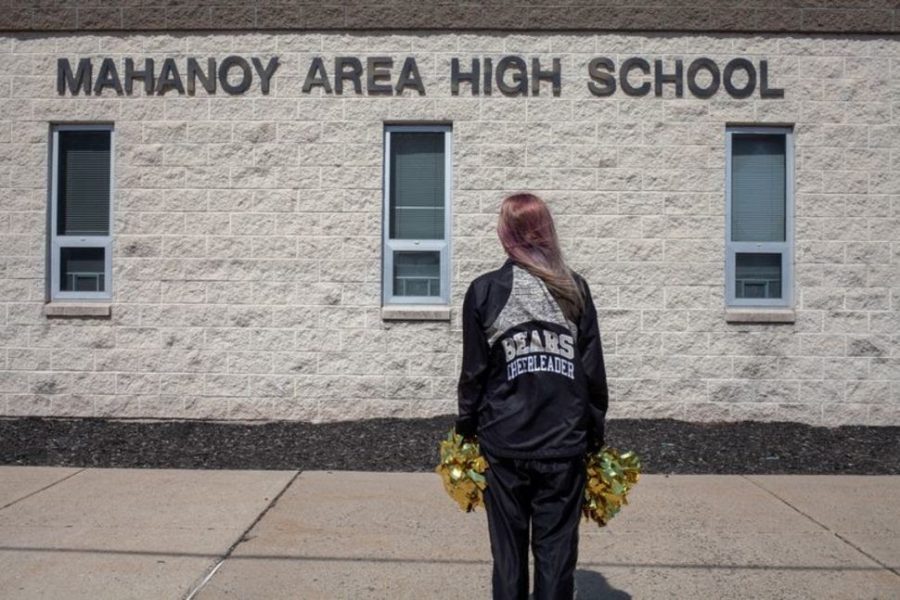Supreme Court takes on their first free-speech case in over fifty years
Brandi Levy, a former cheerleader at Mahanoy Area High School in Mahanoy City, Pennsylvania and a key figure in a major U.S. case about free speech, poses in an undated photograph provided by the American Civil Liberties Union.
Recently, the Supreme Court took on a free speech case, where the parents of now college freshman, Brandi Levy, sued the Mahanoy School District after she was kicked off the junior varsity cheerleading squad for using profane language on the Snapchat platform while not on school grounds.
Back in 2017, Levy had tried out for the varsity cheer squad but had failed to make the cut. Enraged by the incident, Levy went to social media, Snapchat specifically, and used profane language directed at the school. She included a picture of her and a friend, who were both off-campus, raising their middle fingers. Another student saw the post, screenshotted it, and showed it to a coach, who then kicked Brandi off the junior varsity squad.
This case is the biggest student speech case in more than half a century that the Supreme Court has faced. According to National Public Radio, npr.org, this case has been the most important student speech case since the late 1960s, when the Vietnam War was at its highest. That case involved a girl named Mary Beth Tinker and four other students who went to court after being suspended for wearing black armbands to school to protest the war.
Levy’s post hit her school rather quickly. The school had deemed the post disruptive to cheerleader morale and Brandi was suspended from the team for the rest of the year. The American Civil Liberties Union took her case to court, saying that her free speech rights were violated. On April 28th, the Supreme Court faced a question that didn’t exist 52 years ago: Can schools punish students for their online but off-campus speech?
Some of the justices put out their opinion of the case, whether it be on the same side as Levy or a different opinion. Conservative Justice Brett Kavanaugh said that the school’s response seemed like an “over-reaction.”
“She blew off steam like millions of other kids have when they’re disappointed about being cut from the high school team or not being in the starting line-up,” Kavanaugh said.
Progressive Justice Stephen Breyer added to the claim, believing that these punishments are ridiculous. “If swearing off-campus did [qualify], my goodness, every school in the country would be doing nothing but punishing,” Breyer explained.
Students at HHS had their own feelings on the case.
Senior Liam Kinnaird said, “I don’t think she should have been kicked off of the team because she made the post on her own private Snapchat and didn’t target any specific people. I understand the argument that schools club are a privilege not right but I think it would be a bad precedent to allow the restriction of any student’s free speech outside of school.”
The Supreme Court will make a decision in the coming weeks, possibly transforming the landscape of student speech in schools.
Your donation will support the student journalists of Highlands High School. Your contribution will allow us to cover our annual website hosting costs.



